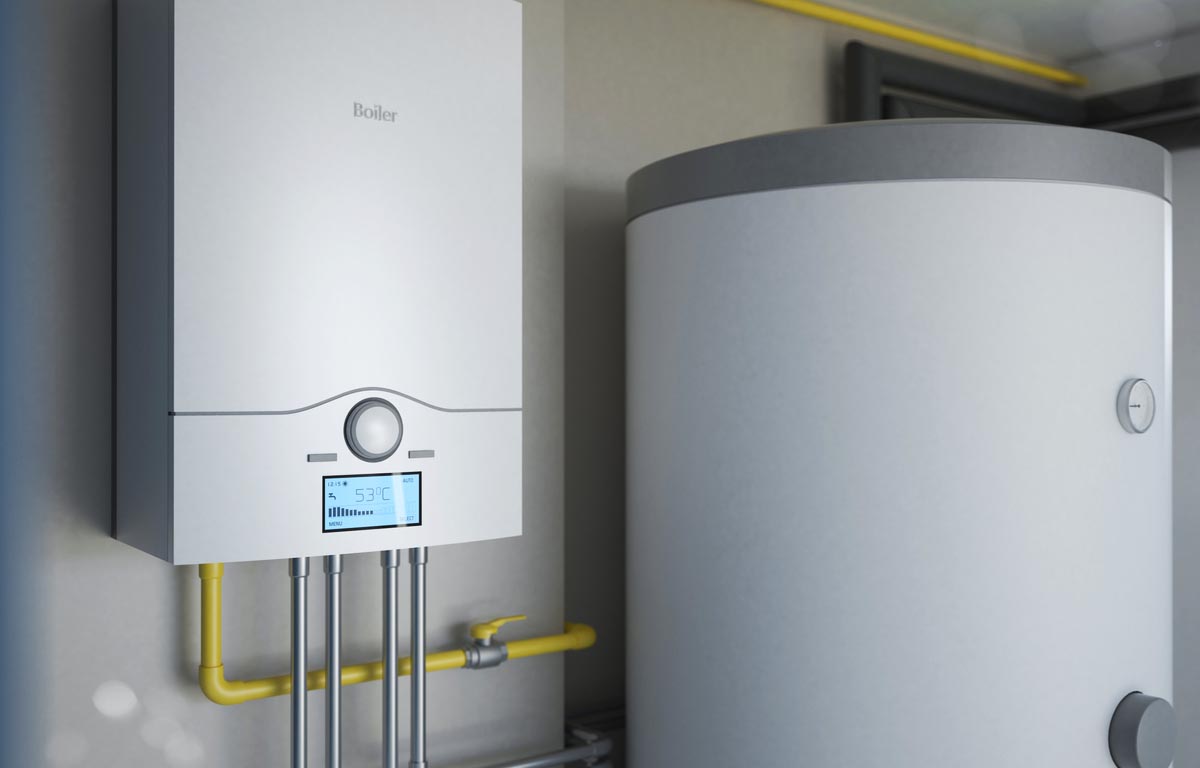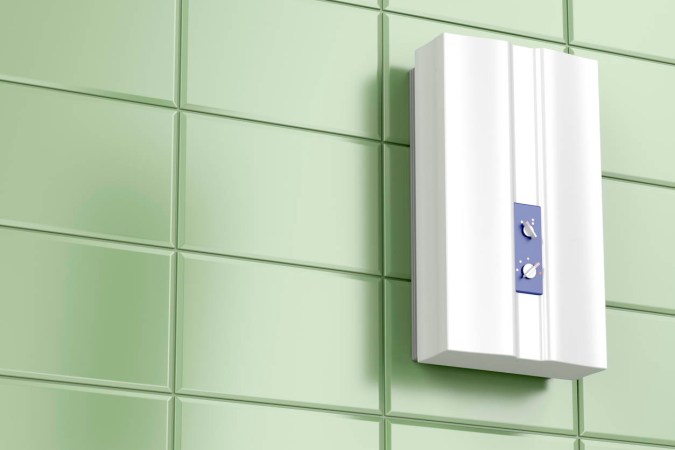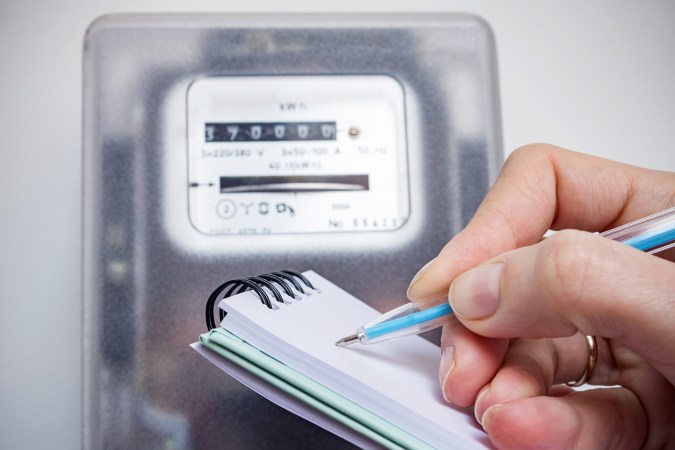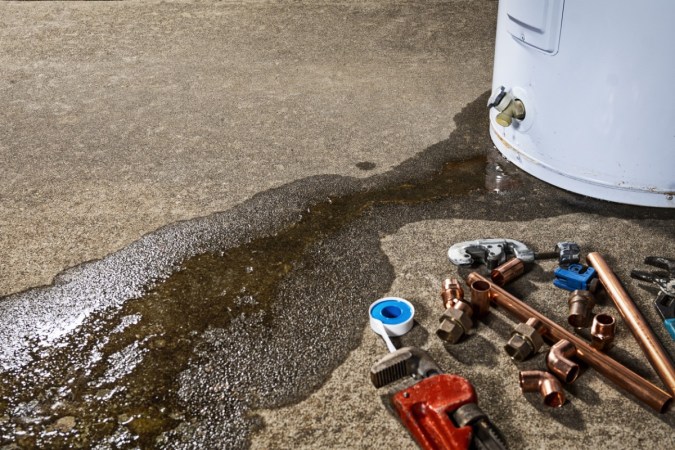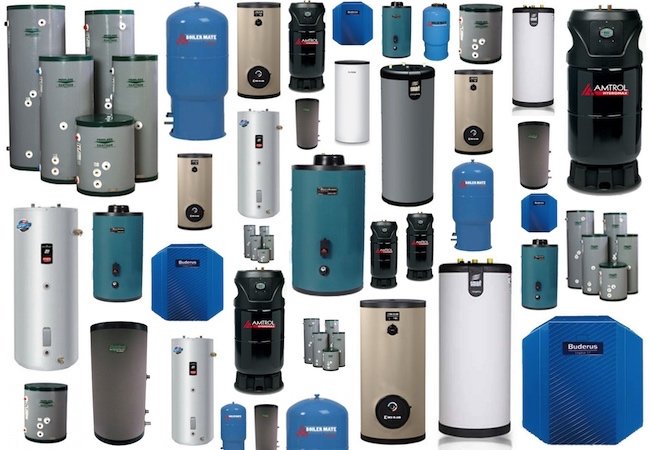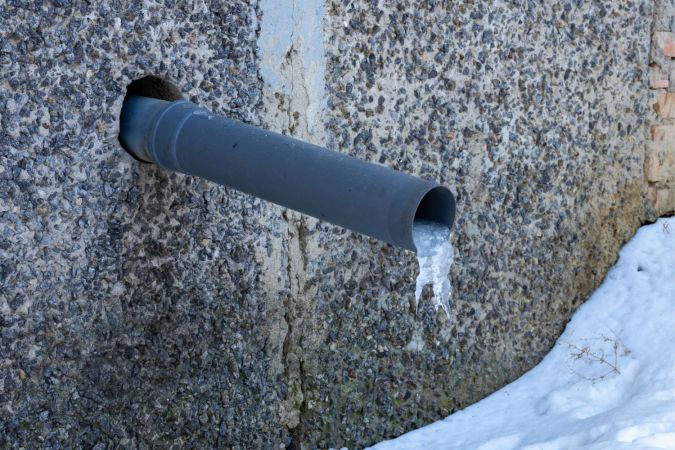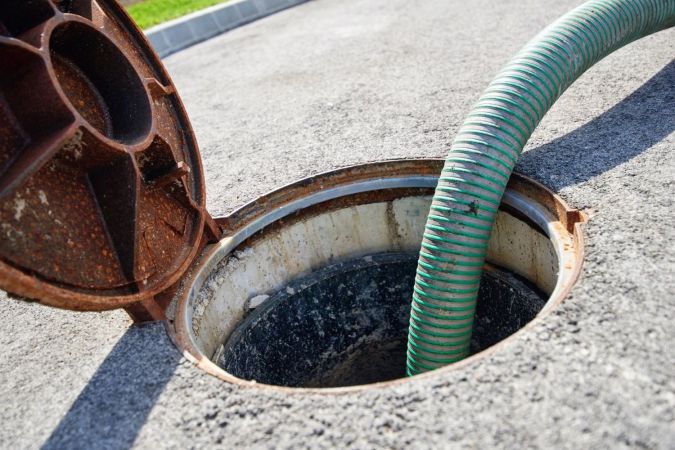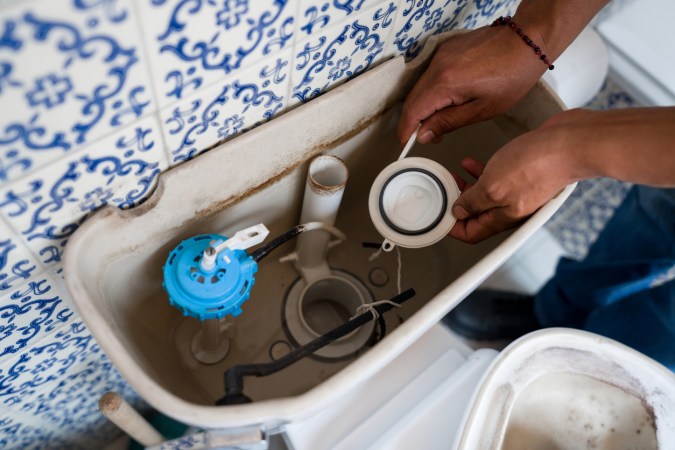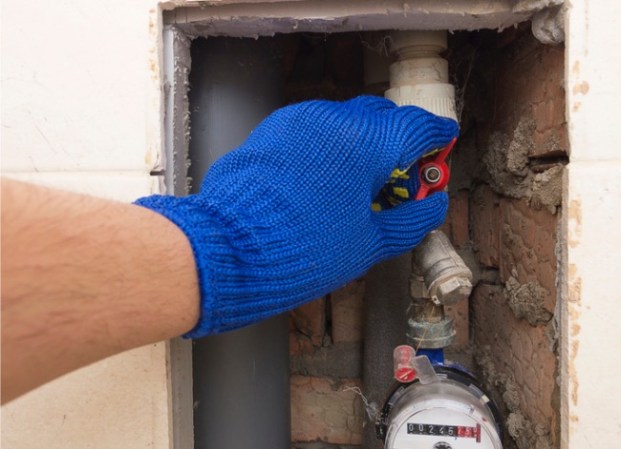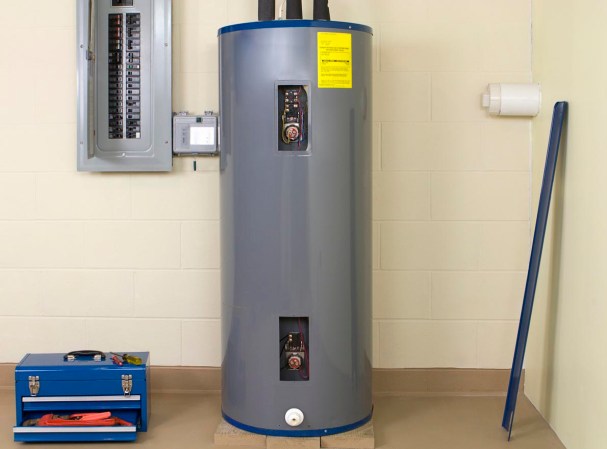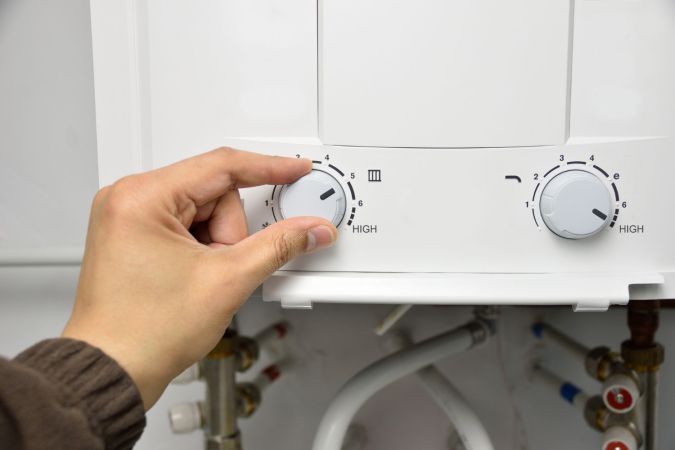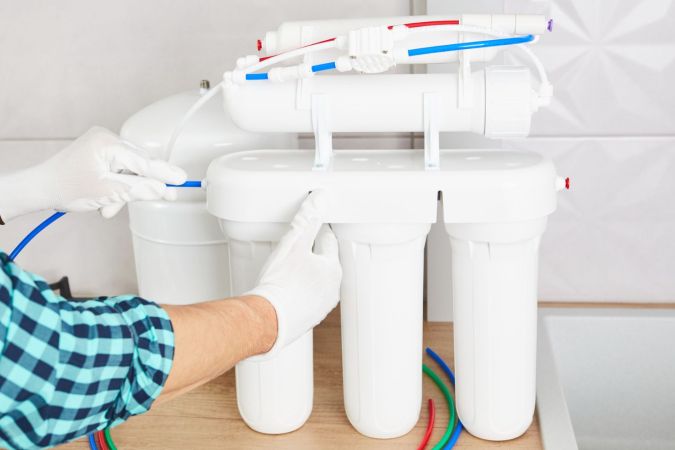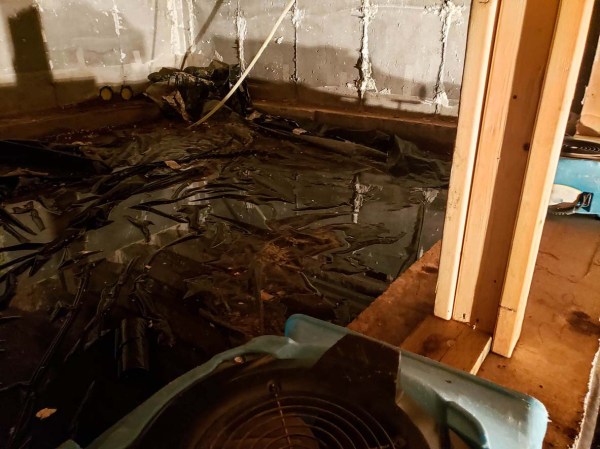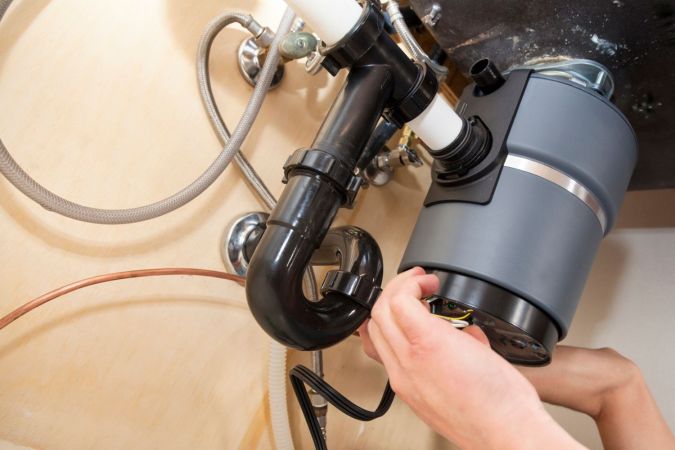We may earn revenue from the products available on this page and participate in affiliate programs. Learn More ›
Q: I moved into my home several years ago, and we haven’t changed the hot water heater in that time. How do I know when to replace the water heater?
A: For most homeowners, hot, running water is a luxury they don’t think twice about. The average person uses warm water up to 20 times per day in their home. However, homeowners should always be proactive in maintaining their water heaters. But when to replace the water heater altogether?
The manufacturer’s average suggested lifespan for a traditional water heater is between eight to 12 years. A tankless water heater can last up to 20 years before it needs to be replaced. Regardless of what type of water heater is installed, over time, it will corrode with age, and it’s essential to monitor it for any of the below issues, especially if it’s in the second half of its lifespan.
The water looks cloudy, sandy, or rusty.
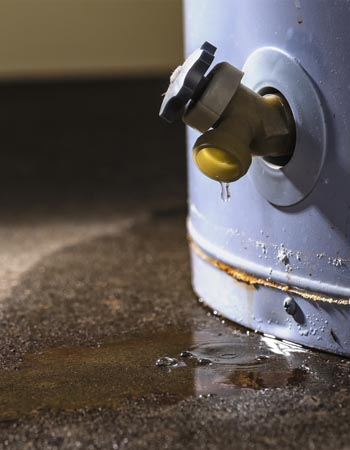
One common issue older water heaters have is producing discolored water. There are many reasons why this could occur, and it may not mean the water heater needs to be replaced.
When corrosion happens, rust builds and can leak into the water supply. This leads to discolored water coming out of the faucets. Before jumping to conclusions about the water heater, homeowners should run cold tap water for a few minutes. If that water is also rusty, it may mean the issue is within the pipes, not the heater. If it is not rusty, it may be time for a new water heater.
Sometimes water may be cloudy or sandy, caused by a buildup of sediment in the heater tank. Homeowners can rectify this issue by draining the contents of the tank and clearing out the sediment. However, if the water continues to run sandy or cloudy, the heater must be replaced.
You’re not getting enough (or any) hot water, but your heating bill has gone up.
The most obvious reason to get a new hot water heater is a lack of warm water getting to the house. This can mean the water isn’t as hot, the periods of hot water don’t last as long, or there is no hot water altogether. The issue worsens if the heating bill is going up at the same time.
There may be no or less hot water because there is an issue with the electrical thermostat. On average, a home should have the thermostat set between 120 and 140 degrees. If the thermostat is readjusted and the hot water returns, then there’s no reason to replace the heater.
The lack of hot water could also result from a broken heating element within the water heater. A plumber can easily fix this issue, get the parts needed, and restore heating functions within a few hours. However, the components required for older water heaters may not be as readily available, and in some cases, it may be just better to replace the system overall.
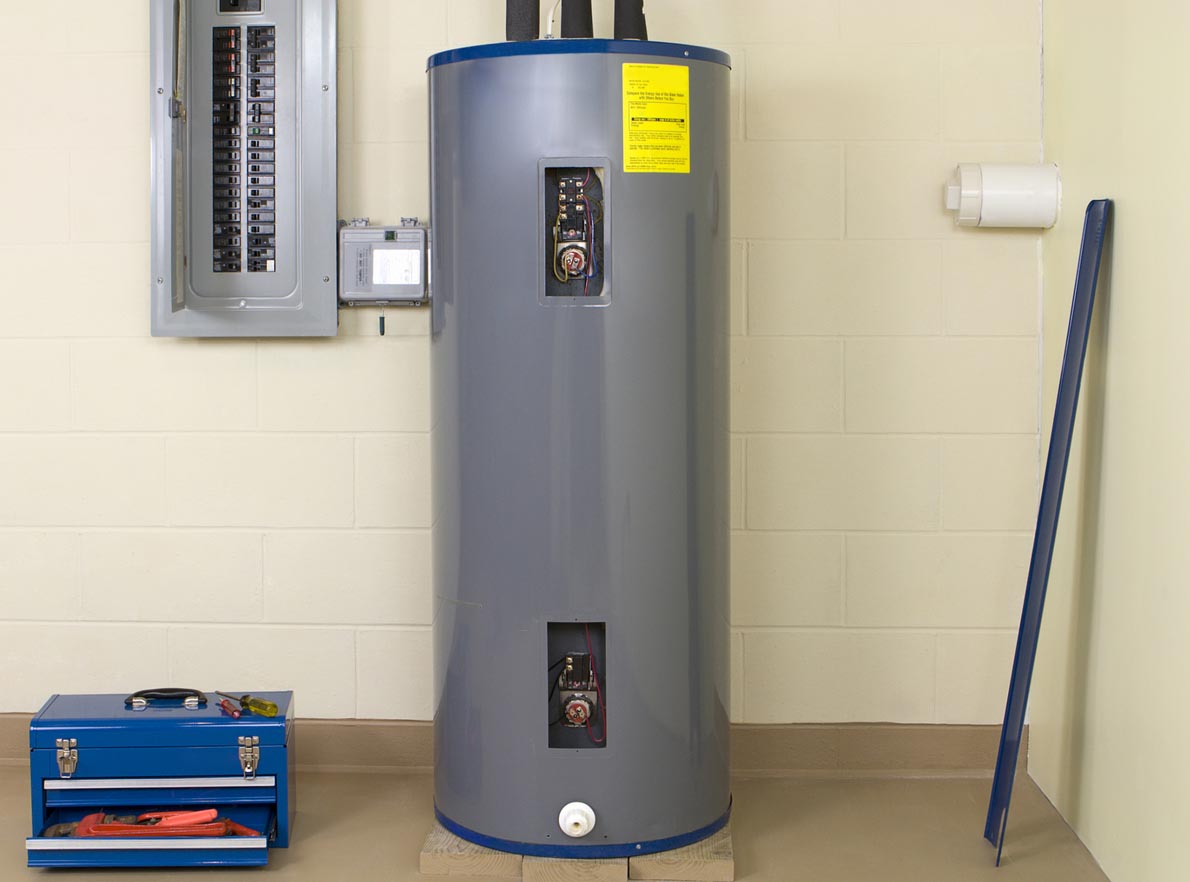
The water heater is making strange noises.
As water heaters get older, the rumbling noises they make to heat up water might get louder. This can be due to various reasons, which may be more significant signs the heater needs to be replaced.
As mentioned above, sediment can build up over time at the bottom of the tank. The noise caused by sediment buildup is the sound of the hardened sediment banging against the tank. If not flushed out, the sediment will grow harder and thicker along the floor and start to wear the water heater down. This will make the heater more inefficient and accelerate the damage to the tank.
Homeowners should check for this problem as soon as they hear any unusual noise from their water heater. Taking early action can prevent long-term damage and extend the heater’s life if it’s not yet time for a water heater replacement.
You’ve noticed the water heater is leaking.
At the end of their life span, hot water heaters tend to leak around the floor of the tank. This could potentially lead to minor to significant property damage for the homeowner. A leak in a water heater tank could mean it’s time to replace it.
Leaks are usually caused as the result of expansions to metal in the tank. These expansions occur over the multiple heating cycles of the tank’s life. Fractures may occur because of this expansion, leaking water at the height of each heating cycle. Sometimes, the leak may be minor enough to fix, but this is only delaying the inevitable replacement.
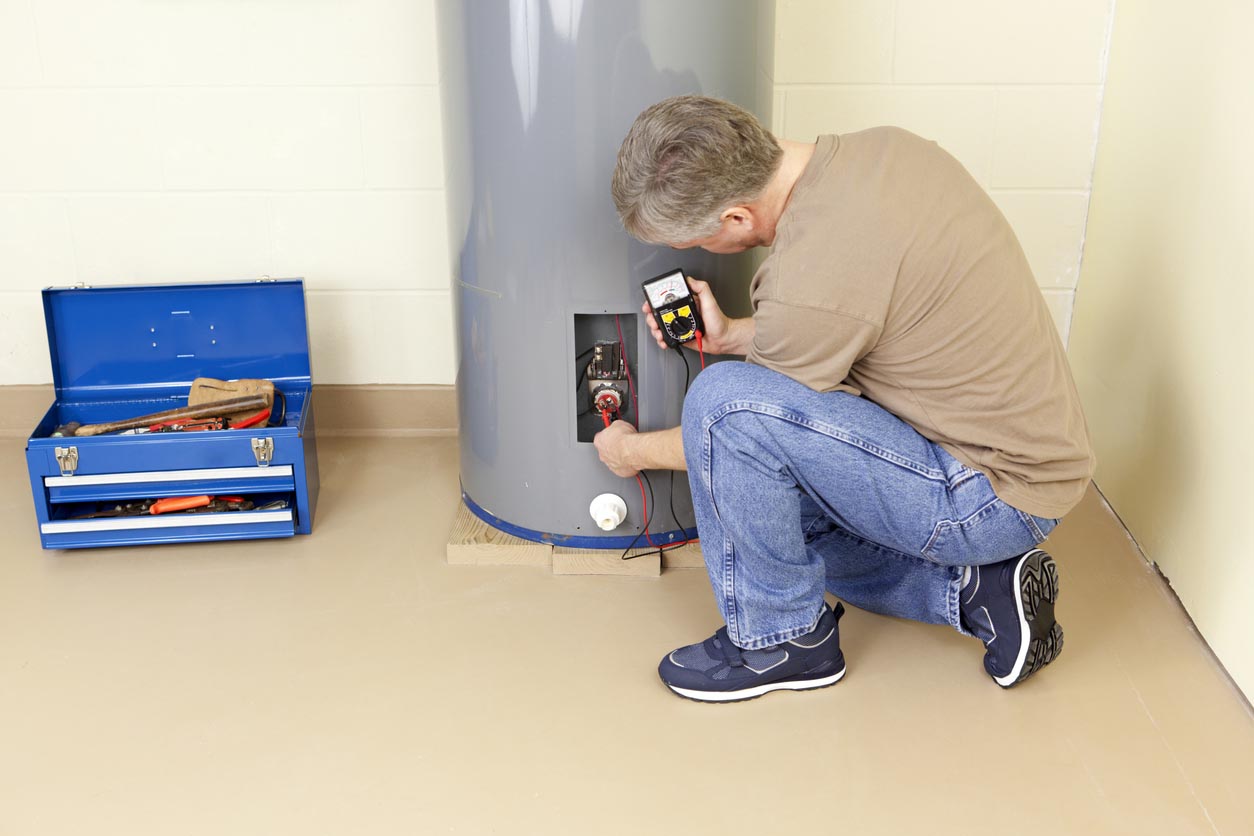
You’ve called in multiple repairs in recent years.
Water heaters can be sensitive and may need to be repaired frequently. If a homeowner finds themselves calling in a plumber on multiple occasions for a hot water heater repair, it may be worth it to replace it altogether.
Water heaters are getting more sophisticated every year. Depending on which heater is purchased, it could last longer and even provide some efficiency for electricity bills.
Your water heater is old, or you’re not sure when it was last replaced.
Often, when a person buys a house, the water heater was installed years ago. If the previous homeowner doesn’t have any documentation, it can be challenging to gauge how old the water heater is and when it needs to be replaced.
Luckily, the serial number on the water heater typically includes a manufacturing date. In most cases, the first letter of the serial number will indicate the month it was manufactured, starting with “A” for January, leading all the way to “L” for December. The next two numbers will indicate the year it was made. For example, if a serial number starts with “C19” the water heater was manufactured in March 2019.
Even if none of the above problems are occurring, if a water heater is over 10 years old, the homeowner should have it maintenanced. It’s best to hire a professional plumber who can let you know if there are any issues with the heater and give their professional opinion about when they should replace it.
